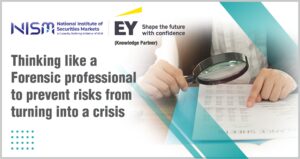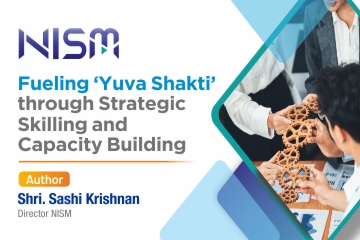
Today’s business landscape is volatile and riddled with fraud risks emerging from rapid digitalization, lack of adequate control measures, and lax governance. Tech- savvy fraudsters exploit these loopholes to siphon off huge funds. From financial crime, employment fraud, oversight errors, fraudulent transactions, asset misappropriation, money laundering, and terrorism financing—fraudsters leverage advanced technologies to launch multipronged attacks that can cripple the organization and quickly escalate into full-blown crises. While organizations must ensure they are equipped to deal with fraud on a real-time basis to minimize damage and regain control, building resilience to fraud lies not just in reacting to threats, but proactively anticipating and neutralizing them even before they occur.
Forensic functions play a key role in helping organizations build frameworks that can withstand fraud incidents and prevent them from erupting in the first place. It is imperative for professionals to stay at the top of their game so that they can outsmart fraudsters who harness latest technologies to devise high-level frauds. While brushing up on the basics of compliance and keeping abreast of recent regulatory developments can help, they must develop an acumen for investigative work through rigorous training.
What does it take to be a Forensic professional?
Curiosity is an inherent trait, but it takes more than mere inquisitiveness to become a Forensic professional. The Forensic practice requires professionals that possess a unique blend of analytical acumen, legal insight, and technological fluency. Forensic professionals operate like investigators—decoding financial records to uncover hidden patterns, misconduct, or fraud. Training to develop critical thinking and thoroughness to sniff out a fraud is imperative to make a headway in the Forensic field. Continuous training at regular intervals can help sharpen the analytical bent of
mind to recognize early warning signs, understand the anatomy of risk, and build systems that detect anomalies before they become disasters. Essentially, professionals must learn to toe the line between measured scepticism and unfruitful cynicism to be able to make informed decisions. Over time, this will help them guide companies towards building a proactive fraud risk management practice, establish good governance principles, and automate compliance.
Developing a Forensic mind
Constant upskilling is a must for Forensic professionals. Getting acquainted with the latest technological advancements empowers them to detect red flags more effectively and respond with precision. It provides a competitive edge, enabling professionals to lead investigations with confidence and accuracy. Moreover, the ever-evolving regulatory environment demands ongoing learning to ensure that forensic investigations remain timely, compliant, and legally sound. Whether it’s mastering digital forensics, leveraging AI-driven analytics, or navigating
complex legal environments, training ensures professionals remain sharp and relevant. Regular engagement reviews, hands-on interviews, and structured learning sessions are integral to maintaining an edge. The Forensic practice thrives on adaptability, making lifelong learning the cornerstone of success in the field.
Mitigating risks, preventing crises
Every organization is aware of the sector-specific risks associated with their operations but when threats are underestimated, they can quickly spiral into a crisis—often with devastating consequences. Crisis management is not only costly, but also only a curative measure aimed at controlling the degree of damage incurred. Forensic-oriented thinking encourages organizations to look beyond surface-level indicators and delve into the root causes of threats, so that they can be nipped in the bud. Forensic experts play the multifaceted role as strategic advisors helping organizations anticipate vulnerabilities and respond before risks snowball into crises. This entails developing a framework that automates regulatory compliance at every level and strengthening fraud reporting mechanisms to encourage organization-wide participation in risk management efforts.
Leveraging technology as an ally
Till a few decades ago, Forensic professionals had to rely on manual methods to carry out investigations. These checks had room for error caused by human oversight or bias. With advanced technologies such as AI, GenAI, and Machine Learning, the Forensic practice is now equipped with an arsenal to fight fraud and enhance compliance. Tools like data analytics, digital forensics, document checking, background checks, are at the disposal of Forensic professionals to help identify irregularities, trace transactions, and uncover hidden motives. Learning to leverage these tech tools is a non-negotiable for the modern Forensic professional.

The Union Budget 2026, presented by Finance Minister Nirmala Sitharaman, marks a watershed moment in India’s economic narrative. Dubbed the…

The Budget 2026 brought a huge setback for the Sovereign Gold Bond (SGB) investors. Before Budget 2026, all redemptions of…

Volatility risk is well known, but that is usually less dangerous Retirees fear market volatility, and volatility is a risk…
© 2026 National Institute of Securities Markets (NISM). All rights reserved.